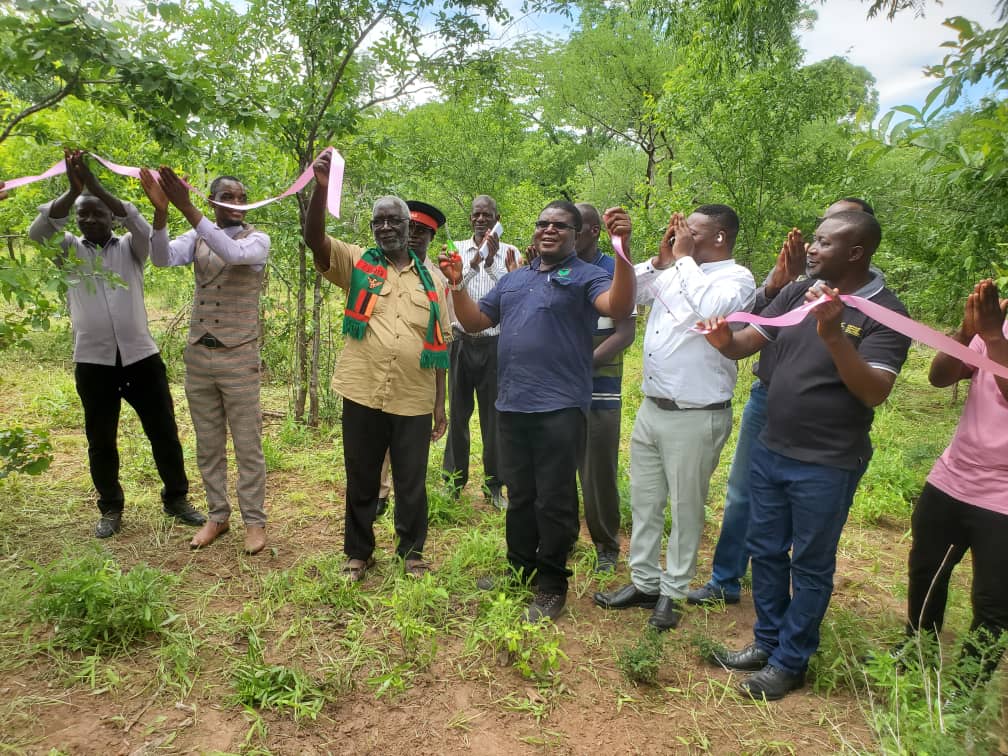
By Josiah Mpofu
Chief Chipepo of Chirundu district in Southern province has appealed to government to quickly enforce stringent laws and policies that will prevent charcoal burning in the country.
Speaking during the launch of the Transhumance intervention in Chirundu, the traditional leader said the district has continued to experience indiscriminate cutting down of trees by charcoal burners.
Chief Chipepo noted that the situation requires urgent attention in order to safeguard the environment and mitigate climate change effects.
The traditional leader said Zambia should emulate other countries that have succeeded in ending Charcoal burning.
Chief Chipepo noted that charcoal burning, overgrazing and burning of bushes have been the major contributors to climate change in Zambia hence the need for more mitigation measures.
“Burning of bushes leads to air pollution, soil degradation, loss of biodiversity, greenhouse gas emissions, damage to infrastructure and livelihoods, and increased vulnerability to climate change. Charcoal production has devastating ecological and environmental effects. The most commonly cited impact of Charcoal production is deforestation as it allows the clearance of forest or woodland,” Chief Chipepo noted.
The traditional leader indicated that Southern Province is currently a victim of climate change effects such as floods and dry spells due to cleared vegetation.
Chief Chipepo has however warned his subjects against livestock theft as anyone found wanting will face a jail sentence of not less than 15 years.
Chief Chipepo advised his subjects to apply for loans under the Sustainable Agricultural Financing Facility (SAFF) to buy livestock instead of stealing.
“Government has introduced various income generating programmes such as Cash for work, SAFF and the Comprehensive Agriculture Transformation Support Program (CATSP), that farmers should utilise as opposed to stealing other people’s livestock,” The traditional leader indicated.
Meanwhile, Fisheries and Livestock Minister Peter Kapala said government is working on modalities that will increase cattle production to 7.4 million by 2027.
Speaking in a speech read for him by the Ministry’s Livestock Director Bornwell Mupeyo, Mr Kapala stated that government through the SAFF programme has set aside funds which farmers can access at affordable interest rate, to invest in livestock production.
He said government was also enhancing rangeland management to ensure availability of nutritious food for livestock.
Furrer Foundation Programme Manager Libakeni Nabiwa said over 9,800 cattle and 3,000 goats in Chirundu and Siavonga districts have been earmarked to move to communal grazing land to enhance rangeland management.
Dr Nabiwa revealed that the move is under the programme called Transhumance, which help to reduce Under grazing and overgrazing and improve animal health as well as environmental sustainability.
“Under grazing and overgrazing have negative effects on the ecosystem, they can have long-lasting consequences if not properly managed. Under grazing increases the risk of wildfires and overgrazing can lead to land degradation,” Dr Nabiwa elucidated.
Transhumance refers to the seasonal movement of people with their livestock between geographical or climatic regions. Every year, in spring and autumn, men and women herders organise the movement of thousands of animals along traditional pastoral paths.
It is hoped that the transhumance pastoral system will lead to increased Livestock productivity and contribute significantly to Zambia’s food security and incomes. –NAIS
